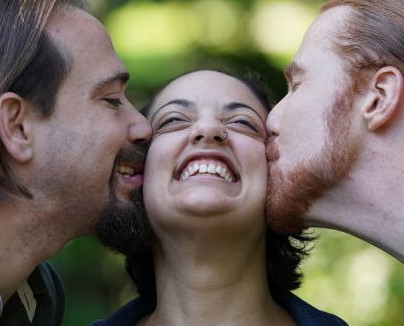BY MARY HARRINGTON
April 28, 2021
-UnHerd
Progressive campaigning, by definition, seeks to bring into being a desired world that — we’re told — would be an improvement over the existing cruel and ugly one. Recently, such campaigning has taken a radical new turn: the pursuit of legal reforms designed to enable everyone to bring into being the particular version of the world they wish to inhabit — often regardless of the degree to which that conflicts with others’ versions of reality.
Canada is the forefront of this drive for the mass customisation of reality. Recently, for example, a Canadian judge ruled that all three adults in a polyamorous relationship should be registered legally as the ‘parents’ of a two-year-old boy they are raising as a ‘throuple’. And last month, Vancouver postman Rob Hoogland was jailed for calling his natal female child ‘she’ — because his estranged wife, and the school his child attends, have been supporting the child (known as A. B.) in “socially transitioning” to a male identity. Hoogland was forbidden by court to refer to her as ‘she’, or seek to influence his child in any way to desist. He refused to comply, and has now been jailed for contempt of court.
Back in 2016, the Canadian academic (and now self-help superstar) Jordan Peterson rose to prominence for his protest against Bill C-16, which he feared would result in ‘compelled speech’ and the threat of punishment for using words that reflected his understanding of reality rather than an officially orthodox one. Column inches were expended at the time explaining why this was mere fear-mongering. But five years later, it seems Peterson was right: in Canada at least, the balance of power has tipped decisively in favour of individuals’ right to tailor their own reality to personal preference — and to use the law’s coercive force to compel public compliance.
This in turn invites the question: whose realities get priority? After all, some realities are mutually exclusive, such Hoogland’s belief that his child is a girl, and that of his ex-wife that the same child is a boy. Similarly, at some point in the future, a now two-year-old boy’s wish to understand which of his three ‘parents’ provided his genetic inheritance (ie which two of the three were his biological parents) may come into conflict with three people’s legal recognition as equally his parents. Which side the law comes down on in such cases, as each emerges, will reveal the underlying moral hierarchies now being entrenched.
Similar contests are afoot in England too. At the time of writing, Maya Forstater is in the UK’s Employment Appeal Tribunal appealing against a ruling that her belief that humans can’t change sex is ‘not worthy of respect in a democratic society’. The laws in question may seem abstruse but at their root is the question of how, and to what extent, individual desire and individual identity should be required to submit to shared material or social realities — or vice versa.
It’s one of the defining political battlefields of our time — and surreal legal rulings now emanating from Canada provide some clue as to where we might be heading. Let’s hope British courts, and British public opinion, are able to resist the siren song of the world as it should be, and retain some relationship to the world as it is.




